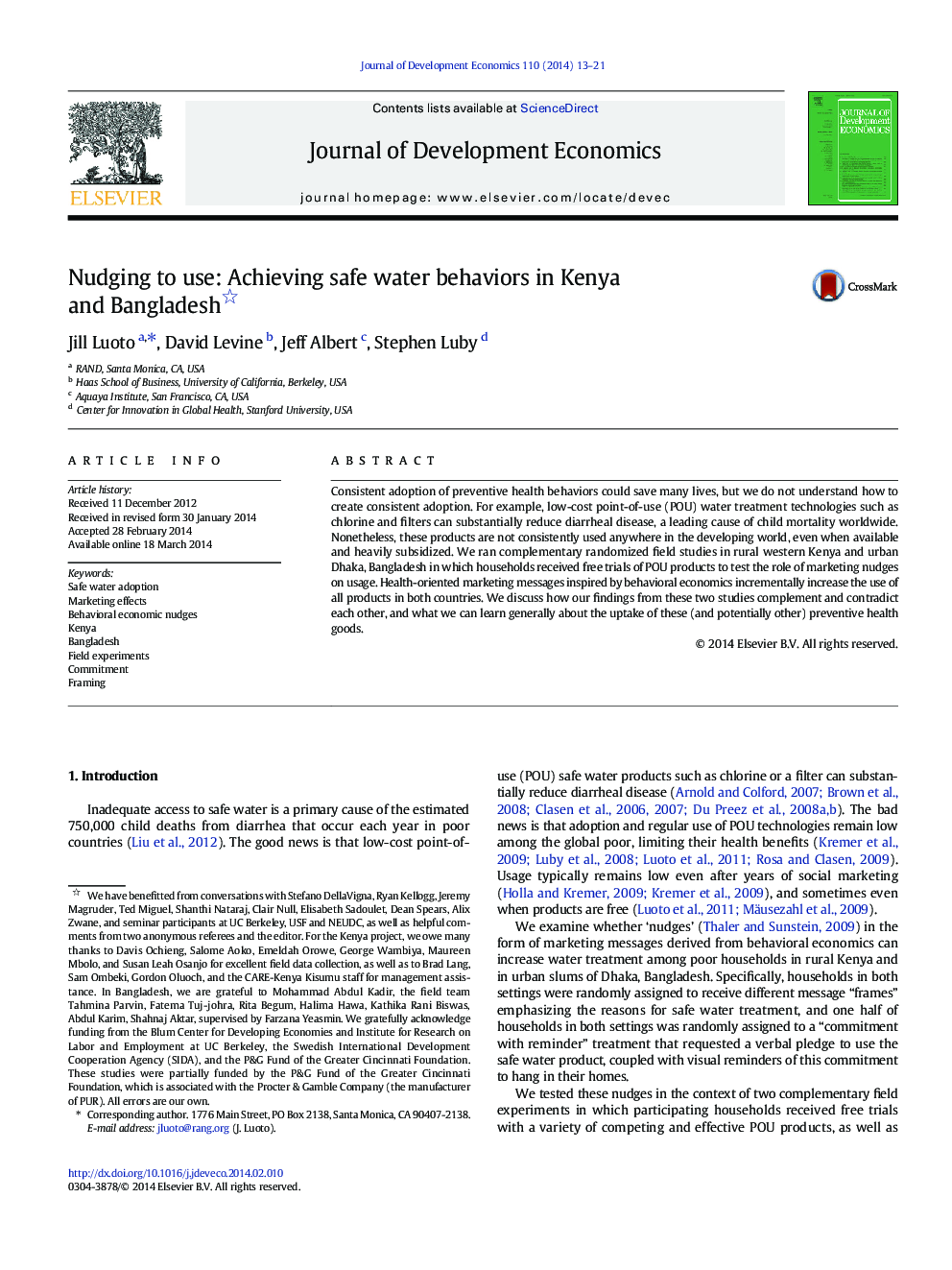| کد مقاله | کد نشریه | سال انتشار | مقاله انگلیسی | نسخه تمام متن |
|---|---|---|---|---|
| 5094483 | 1478501 | 2014 | 9 صفحه PDF | دانلود رایگان |
- Field experiments in rural Kenya and urban Bangladesh.
- We provide free safe water products to households.
- Messages about framing and commitment increase usage in both countries.
- Similar findings in two settings reduce concerns of external validity.
Consistent adoption of preventive health behaviors could save many lives, but we do not understand how to create consistent adoption. For example, low-cost point-of-use (POU) water treatment technologies such as chlorine and filters can substantially reduce diarrheal disease, a leading cause of child mortality worldwide. Nonetheless, these products are not consistently used anywhere in the developing world, even when available and heavily subsidized. We ran complementary randomized field studies in rural western Kenya and urban Dhaka, Bangladesh in which households received free trials of POU products to test the role of marketing nudges on usage. Health-oriented marketing messages inspired by behavioral economics incrementally increase the use of all products in both countries. We discuss how our findings from these two studies complement and contradict each other, and what we can learn generally about the uptake of these (and potentially other) preventive health goods.
Journal: Journal of Development Economics - Volume 110, September 2014, Pages 13-21
